By Shane Cooper, Hospitality Pod Leader at SkyTide Group
Lessons from the Frontline
The hospitality industry is undergoing a dramatic transformation in how it leverages technology. At SkyTide Group, I lead the Hospitality Pod, a team dedicated to helping hotels tackle their unique IT challenges and achieve operational excellence. Our focus is on creating tailored IT strategies that address the specific needs of the hospitality sector. In 2024, our team spearheaded a significant shift: helping four hospitality clients move from traditional on-premises servers to cloud technology for hotels.
These transitions weren’t just about upgrading technology—it was about fundamentally improving how their hotels operate and serve their guests. Here’s what we learned along the way.
Why Hotels Are Moving Away from Traditional Servers
On-site servers used to be essential for running a hotel, but they’ve become more of a burden than an asset. They’re expensive to maintain, difficult to upgrade, and can leave staff scrambling when problems arise. With the cloud-based property management system market reaching $3.43 billion in 2024, we recognized it was time for change. My team and I worked closely with our hotel partners to move their critical systems – payment processing, online reservations platforms, room management and more – into cloud solutions. This shift has streamlined operations and made technology work for hotels rather than against them.
This shift wasn’t just about modernization; it was about creating a unified ecosystem where platforms communicate seamlessly. From bar payments to room check-ins, operations became faster, smoother, and more guest-focused.
The Benefits of Cloud Migration for Hotels
Migrating to leading cloud platforms like Microsoft Azure and Office 365 brought immediate benefits:
- Cost Savings: Eliminating on-premises servers significantly reduced maintenance expenses.
- Scalability: Cloud solutions provide the flexibility to scale resources as properties grow or demand fluctuates.
- Operational Independence: Hotels no longer need to rely on outdated, rigid systems.
.
These changes allow properties to focus on delivering exceptional guest experiences rather than worrying about IT roadblocks. Additionally, the scalability of cloud infrastructure allows hotels to adjust seamlessly during peak seasons or special events, ensuring uninterrupted service delivery.
Overcoming Challenges: A Team Effort to Tackle the Tough Parts
Transitioning to the cloud while keeping a hotel running smoothly wasn’t easy. We faced several challenges:
- Compatibility Issues: Ensuring new cloud systems integrated with existing processes.
- Vendor Management: Coordinating with providers like Shift4 and others to align timelines and requirements and keep everything on track.
- Stakeholder Communication: Keeping everyone— hotel staff, vendors and leadership informed and confident throughout the change.
.
Through careful planning and constant communication, we managed these transitions without disrupting any part of the hotel’s service. This success has become our blueprint for helping other properties make the same move.
Better Guest Experience
The impact on guests has been remarkable. Check-ins are faster, payments process more reliably, and hotel staff can respond to needs more quickly. These improvements aren’t just technical upgrades – they’re making real differences in how guests experience their stays. And happy guests translate to stronger reviews and brand loyalty for hotels.
Looking Ahead with Cloud Technology for Hotels
Cloud migration is just the beginning. The shift to cloud technology for hotels lays a solid foundation for future innovations. With smart hotel technology expected to reach $24.46 billion by 2024, this shift to cloud systems is laying groundwork for even more advances. With this foundational shift, hotels are now primed to leverage:
- Advanced Data Analytics: Understand guest preferences and optimize operations.
- AI-Driven Personalization: Deliver tailored experiences that wow guests.
- IoT-Enabled Services: From smart room controls to enhanced energy efficiency, the possibilities are endless.
.
These aren’t just buzzwords – they’re practical tools that help hotels stay ahead of the competition, offering features that resonate with guests while maximizing operational efficiency.
Setting New Standards
At SkyTide Group, our work with cloud technology shows how hotels can evolve while improving their service. Hotels of all sizes are discovering that modern IT isn’t just about keeping up – it’s about transforming operations, enhancing services and setting new standards for guest satisfaction.
As the Hospitality Pod Leader, I’ve seen firsthand how embracing cloud technology for hotels can elevate hotel operations, boost efficiency, and improve guest experience. It’s not just a trend—it’s the future of the industry.
Transform YOUR property with Cloud Technology for Hotels
If you’re considering updating your hotel’s technology, cloud solutions could be the answer. At SkyTide Group, my team and I understand the challenges and opportunities involved, and we’re here to help make that transition work for your property.
Ready to future-proof your hotel or resort? Let’s talk.
About SkyTide Group
SkyTide Group is a nationwide Managed Service Provider (MSP) dedicated to helping businesses navigate technology with confidence. From IT strategy and cybersecurity to seamless technology integrations, we deliver solutions that drive efficiency, security, and growth. With a focus on building strong relationships and shared success, SkyTide empowers businesses to thrive in today’s digital-first world.





